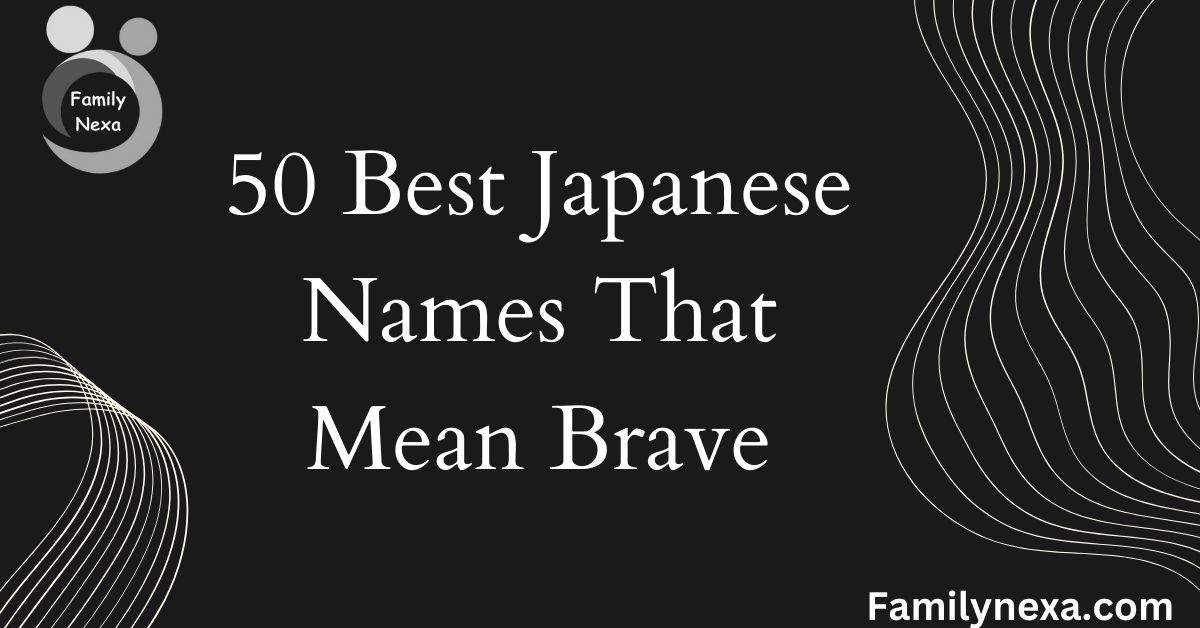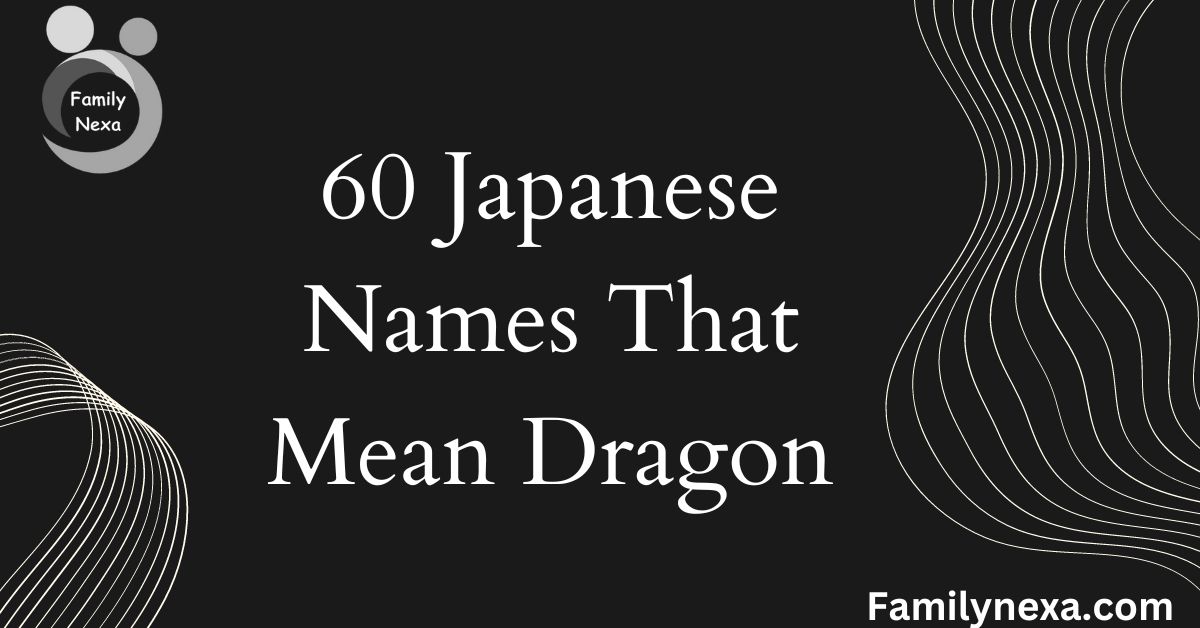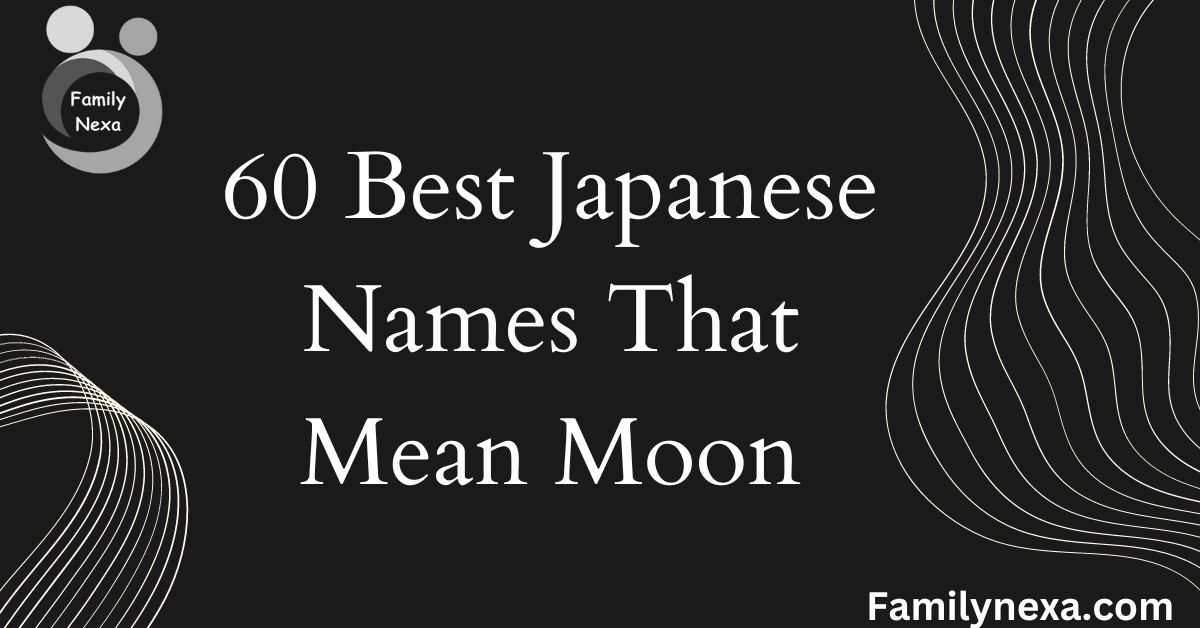Being brave is a good trait. Some Japanese names have the meaning brave. These names are perfect for boys. They sound strong and bold. Examples are Isamu, Kanaye, and Takeo.
Isamu means courageous one. Kanaye means brave one. Takeo means warrior. These names show strength. They would suit a tough little boy.
A boy named Takeo has a bold name. It will encourage him to be fearless. Names with brave meanings are powerful. They help boys grow into confident men.
50 Japanese names that mean brave
Here are 50 names that mean brave:
20 Japanese names that mean brave for girls
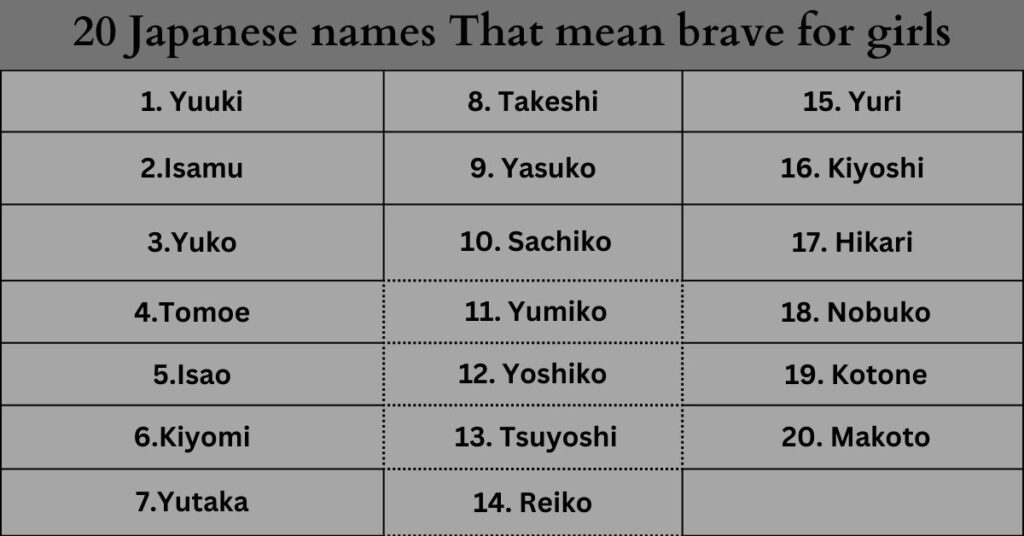
1. Yuuki
- Kanji: (ゆうき)
- Pronunciation: yoo-kee
- Meaning: “brave; courageous”
- Yuuki is a common name reflecting bravery and courage. It symbolizes a person unafraid to face challenges, embodying strength in adversity and determination in the pursuit of their goals.
2. Isamu
- Kanji: (いさむ)
- Pronunciation: ee-sah-moo
- Meaning: “bravery; courage”
- Isamu signifies a brave and courageous spirit, suggesting a person who fearlessly confronts obstacles. It embodies a strong, resolute nature that stands firm in the face of adversity.
3. Yuko
- Kanji: (ゆうこ)
- Pronunciation: yoo-koh
- Meaning: “gentle bravery”
- Yuko combines bravery with gentleness, representing a person whose courage is tempered with kindness. It symbolizes a unique blend of strength and compassion in the pursuit of noble ideals.
4. Tomoe
- Kanji: (ともえ)
- Pronunciation: toh-moh-eh
- Meaning: “brave; wise”
- Tomoe reflects both bravery and wisdom, suggesting a person who approaches challenges with a thoughtful and strategic mindset. It symbolizes not only physical courage but also intellectual strength.
5. Isao
- Kanji: (いさお)
- Pronunciation: ee-sah-oh
- Meaning: “courageous man”
- Isao directly translates to “courageous man,” symbolizing a person with a bold and fearless demeanor. It represents the strength of character associated with unwavering bravery.
6. Kiyomi
- Kanji: (きよみ)
- Pronunciation: kee-yo-mee
- Meaning: “pure bravery”
- Kiyomi combines bravery with purity, signifying a person whose courage is rooted in a noble and untarnished character. It embodies the idea of facing challenges with integrity and moral strength.
7. Yutaka
- Kanji: (ゆたか)
- Pronunciation: yoo-tah-kah
- Meaning: “abundant bravery”
- Yutaka signifies bravery in abundance, suggesting a person with an overflowing reservoir of courage and resilience. It symbolizes a readiness to face challenges with unwavering strength.
8. Takeshi
- Kanji: (たけし)
- Pronunciation: tah-keh-shee
- Meaning: “fierce; warrior”
- Takeshi embodies fierceness and warrior-like bravery. It symbolizes a person with a strong and indomitable spirit, ready to confront challenges head-on with determination and valor.
9. Yasuko
- Kanji: (やすこ)
- Pronunciation: yahs-koh
- Meaning: “peaceful bravery”
- Yasuko combines bravery with peace, signifying a person whose courage is directed towards creating harmony. It symbolizes a brave heart committed to peaceful resolutions and understanding.
10. Sachiko
- Kanji: (さちこ)
- Pronunciation: sah-chee-koh
- Meaning: “child of blissful courage”
- Sachiko combines courage with a sense of bliss, symbolizing a person who faces challenges with a joyful and courageous spirit. It represents a harmonious blend of bravery and contentment.
11. Yumiko
- Kanji: (ゆみこ)
- Pronunciation: yoo-mee-koh
- Meaning: “brave child”
- Yumiko signifies a child with bravery, embodying the courage and strength associated with youth. It represents a person with a fearless and adventurous spirit.
12. Yoshiko
- Kanji: (よしこ)
- Pronunciation: yoh-shee-koh
- Meaning: “brave child”
- Yoshiko, like Yumiko, translates to “brave child,” symbolizing a person with inherent courage and resilience from an early age. It reflects a fearless and spirited nature.
13. Tsuyoshi
- Kanji: (つよし)
- Pronunciation: tsoo-yoh-shee
- Meaning: “strong; brave”
- Tsuyoshi reflects both strength and bravery, symbolizing a person with robust courage and resilience. It represents a fearless and sturdy character in the face of challenges.
14. Reiko
- Kanji: (れいこ)
- Pronunciation: ray-koh
- Meaning: “graceful bravery”
- Reiko combines bravery with grace, signifying a person whose courage is expressed with elegance and poise. It represents a graceful approach to facing difficulties.
15. Yuri
- Kanji: (ゆり)
- Pronunciation: yoo-ree
- Meaning: “lily; brave”
- Yuri intertwines the symbolism of lilies with bravery, suggesting a person with both delicate beauty and inner strength. It represents a courageous and graceful character.
16. Kiyoshi
- Kanji: (きよし)
- Pronunciation: kee-yoh-shee
- Meaning: “pure; brave”
- Kiyoshi combines purity with bravery, symbolizing a person with a noble and untarnished courage. It represents a brave heart guided by principles of integrity.
17. Hikari
- Kanji: (ひかり)
- Pronunciation: hee-kah-ree
- Meaning: “light; brave”
- Hikari combines the concept of light with bravery, suggesting a person who brings illumination and courage to others. It symbolizes a radiant and brave spirit.
18. Nobuko
- Kanji: (のぶこ)
- Pronunciation: noh-boo-koh
- Meaning: “faithful child of bravery”
- Nobuko combines the idea of faithfulness with bravery, symbolizing a person who remains steadfast and loyal in the face of challenges. It represents unwavering courage.
19. Kotone
- Kanji: (ことね)
- Pronunciation: koh-toh-neh
- Meaning: “brave sound”
- Kotone combines bravery with the concept of a sound, signifying a person whose courage resonates and leaves a lasting impact. It represents a bold and impactful spirit.
20. Makoto
- Kanji: (まこと)
- Pronunciation: mah-koh-toh
- Meaning: “sincerity; truth”
- Makoto, while not directly translating to bravery, symbolizes sincerity and truth, akin to the authentic courage associated with genuine character. It represents a person with unwavering honesty and bravery in their convictions.
20 Japanese names that mean brave for boys
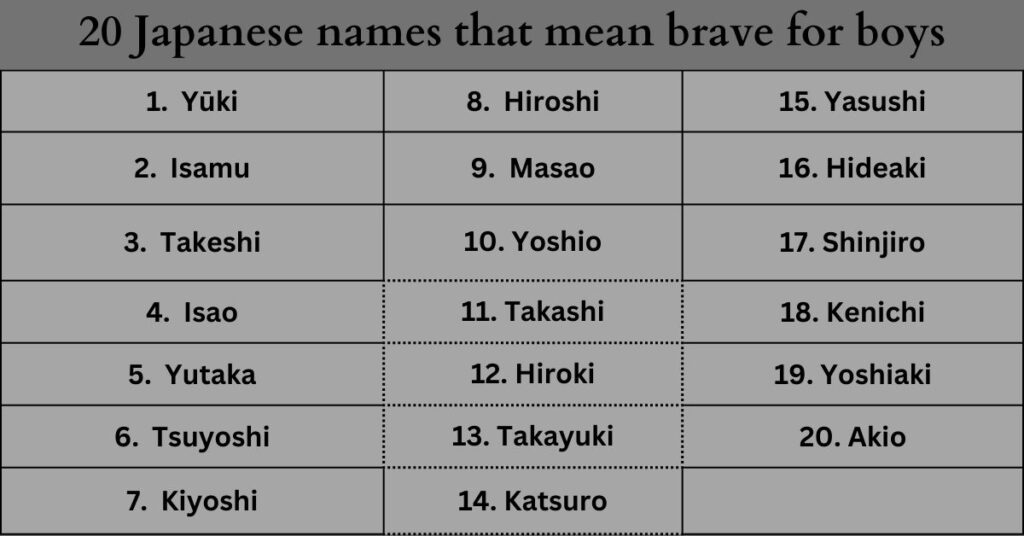
1. Yūki
- Kanji: (ゆうき)
- Pronunciation: yoo-kee
- Meaning: “brave; courageous”
- Yūki signifies bravery and courage, representing a person who fearlessly faces challenges. It embodies the strength to stand resolute in difficult situations and pursue ambitions with unwavering determination.
2. Isamu
- Kanji: (いさむ)
- Pronunciation: ee-sah-moo
- Meaning: “bravery; courage”
- Isamu reflects a bold and courageous spirit, symbolizing a person unafraid of adversity. It represents the innate strength to confront challenges with valor and resilience.
3. Takeshi
- Kanji: (たけし)
- Pronunciation: tah-keh-shee
- Meaning: “fierce; warrior”
- Takeshi embodies fierceness and warrior-like bravery, symbolizing a person with a strong, indomitable spirit ready to face challenges head-on. It represents the courage of a true warrior.
4. Isao
- Kanji: (いさお)
- Pronunciation: ee-sah-oh
- Meaning: “courageous man”
- Isao directly translates to “courageous man,” embodying the bravery and valor associated with a strong and fearless character.
5. Yutaka
- Kanji: (ゆたか)
- Pronunciation: yoo-tah-kah
- Meaning: “abundant bravery”
- Yutaka symbolizes an abundance of bravery, reflecting a person with an overflowing reservoir of courage and resilience. It represents readiness to face challenges with unwavering strength.
6. Tsuyoshi
- Kanji: (つよし)
- Pronunciation: tsoo-yoh-shee
- Meaning: “strong; brave”
- Tsuyoshi reflects both strength and bravery, signifying a person with robust courage and resilience. It represents a fearless and sturdy character in the face of challenges.
7. Kiyoshi
- Kanji: (きよし)
- Pronunciation: kee-yoh-shee
- Meaning: “pure; brave”
- Kiyoshi combines purity with bravery, symbolizing a person with a noble and untarnished courage. It represents a brave heart guided by principles of integrity.
8. Hiroshi
- Kanji: (ひろし)
- Pronunciation: hee-roh-shee
- Meaning: “generous; brave”
- Hiroshi combines the concept of generosity with bravery, signifying a person with a bold and giving spirit. It represents a courageous heart that extends kindness to others.
9. Masao
- Kanji: (まさお)
- Pronunciation: mah-sah-oh
- Meaning: “righteous man; brave”
- Masao translates to “righteous man,” symbolizing a person whose bravery is grounded in principles of justice and morality. It represents courage aligned with a strong sense of what is right.
10. Yoshio
- Kanji: (よしお)
- Pronunciation: yoh-shee-oh
- Meaning: “righteous man; brave”
- Yoshio, like Masao, translates to “righteous man,” symbolizing bravery rooted in moral principles. It represents a person with courage aligned with a strong sense of righteousness.
11. Takashi
- Kanji: (たかし)
- Pronunciation: tah-kah-shee
- Meaning: “noble; brave”
- Takashi combines nobility with bravery, signifying a person with a courageous and dignified spirit. It represents bravery expressed with elegance and honor.
12. Hiroki
- Kanji: (ひろき)
- Pronunciation: hee-roh-kee
- Meaning: “vast; strong; brave”
- Hiroki combines the concept of vastness with strength and bravery, symbolizing a person with expansive courage and resilience. It represents a bold and robust spirit.
13. Takayuki
- Kanji: (たかゆき)
- Pronunciation: tah-kah-yoo-kee
- Meaning: “noble courage; brave”
- Takayuki combines nobility with courage, signifying a person with a brave and dignified character. It represents courage aligned with elevated principles.
14. Katsuro
- Kanji: (かつろう)
- Pronunciation: kaht-soo-roh
- Meaning: “victory; son; brave”
- Katsuro combines the idea of victory with the concept of a brave son, symbolizing a person with the spirit of a victorious and courageous warrior.
15. Yasushi
- Kanji: (やすし)
- Pronunciation: yah-soo-shee
- Meaning: “peaceful; brave”
- Yasushi combines peace with bravery, signifying a person whose courage is directed towards creating harmony. It represents a brave heart committed to peaceful resolutions and understanding.
16. Hideaki
- Kanji: (ひであき)
- Pronunciation: hee-deh-ah-kee
- Meaning: “excellent; bright; brave”
- Hideaki combines excellence, brightness, and bravery, symbolizing a person with outstanding courage and brilliance. It represents a brave spirit marked by exceptional qualities.
17. Shinjiro
- Kanji: (しんじろう)
- Pronunciation: sheen-jee-roh
- Meaning: “belief; bravery; son”
- Shinjiro combines the concepts of belief and bravery with the idea of a son, symbolizing a person with courageous convictions and a strong, familial spirit.
18. Kenichi
- Kanji: (けんいち)
- Pronunciation: kehn-ee-chee
- Meaning: “strong; healthy; firstborn; brave”
- Kenichi combines strength, health, and bravery, signifying a person with robust courage and vitality. It represents a courageous firstborn with a strong and resilient character.
19. Yoshiaki
- Kanji: (よしあき)
- Pronunciation: yoh-shee-ah-kee
- Meaning: “good; bright; brave”
- Yoshiaki combines the concepts of goodness, brightness, and bravery, symbolizing a person with a virtuous and courageous character. It represents a brave spirit guided by positive principles.
20. Akio
- Kanji: (あきお)
- Pronunciation: ah-kee-oh
- Meaning: “bright; man; brave”
- Akio combines brightness, manhood, and bravery, symbolizing a person with a courageous and illuminated character. It represents a brave individual with a radiant spirit.
10 Gender-neutral Japanese names that mean brave
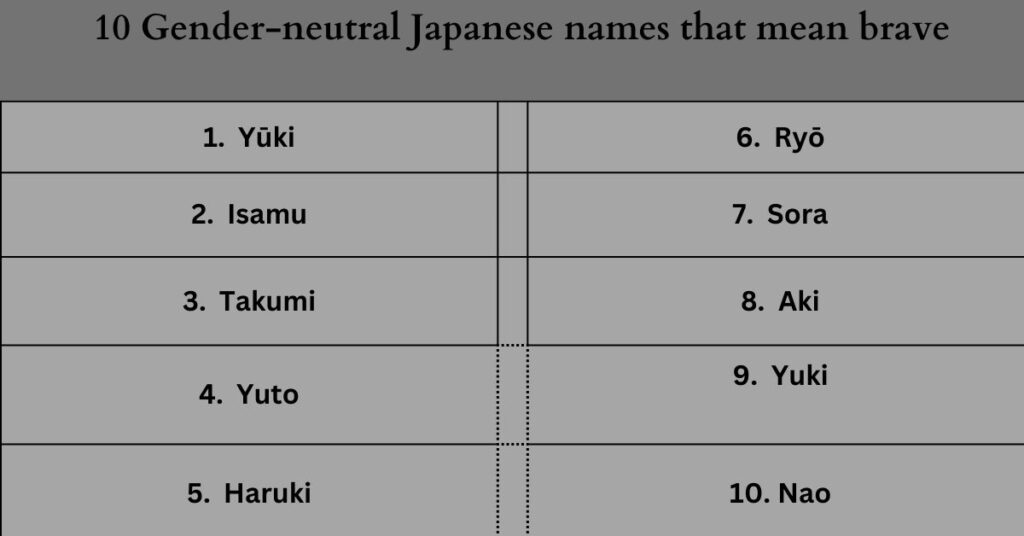
1. Yūki
- Kanji: (ゆうき)
- Pronunciation: yoo-kee
- Meaning: “brave; courage”
- Yūki is a gender-neutral name that reflects courage and bravery. It symbolizes a person with a fearless spirit, unafraid to confront challenges and embodying strength in adversity.
2. Isamu
- Kanji: (いさむ)
- Pronunciation: ee-sah-moo
- Meaning: “bravery; courage”
- Isamu is a name suitable for any gender, embodying a bold and courageous spirit. It represents a person unafraid of adversity, demonstrating resilience and determination in the face of challenges.
3. Takumi
- Kanji: (たくみ)
- Pronunciation: tah-koo-mee
- Meaning: “artisan; skilled; brave”
- Takumi is a gender-neutral name combining bravery with the concept of skill and artistry. It symbolizes a person with the courage to express creativity and excellence in their endeavors.
4. Yuto
- Kanji: (ゆと)
- Pronunciation: yoo-toh
- Meaning: “gentle; brave”
- Yuto is a name suitable for any gender, combining bravery with gentleness. It signifies a person whose courage is tempered with kindness, embodying a harmonious blend of strength and compassion.
5. Haruki
- Kanji: (はるき)
- Pronunciation: hah-roo-kee
- Meaning: “spring; bright; brave”
- Haruki is a gender-neutral name that combines brightness and bravery, symbolizing a person with a courageous spirit that brings renewal and positivity, much like the arrival of spring.
6. Ryō
- Kanji: (りょう)
- Pronunciation: ryoh
- Meaning: “good; excellent; brave”
- Ryō is a name suitable for any gender, combining goodness, excellence, and bravery. It represents a person with virtuous qualities and outstanding courage, embodying high principles.
7. Sora
- Kanji: (そら)
- Pronunciation: soh-rah
- Meaning: “sky; heaven”
- Sora is a gender-neutral name embodying the vast expanse of the sky, symbolizing boundless potential and limitless courage. It represents a person with a brave and celestial spirit.
8. Aki
- Kanji: (あき)
- Pronunciation: ah-kee
- Meaning: “bright; autumn; brave”
- Aki is a gender-neutral name combining brightness, the season of autumn, and bravery. It symbolizes a person with a radiant and courageous spirit, akin to the bold colors of autumn.
9. Yuki
- Kanji: (ゆき)
- Pronunciation: yoo-kee
- Meaning: “snow; courage”
- Yuki is a name suitable for any gender, combining the concept of snow with courage. It symbolizes a person with a serene and brave spirit, much like the quiet strength of falling snow.
10. Nao
- Kanji: (なお)
- Pronunciation: nah-oh
- Meaning: “honest; straight; brave”
- Nao is a gender-neutral name that combines honesty, straightforwardness, and bravery. It represents a person with a courageous and upright character, unafraid to face challenges with integrity.
Frequently Asked Questions
5 ideas to craft perfect Japanese names that mean brave
5 ideas to craft perfect Japanese names that mean brave:
- Combine kanji characters for brave, courage, hero, warrior, strength.
- Pair with virtues like honor, justice, protection, leadership.
- Check dictionary definitions to ensure positive connotations.
- Consult Japanese speakers to validate proper meanings.
- Choose names with 1-3 kanji for simplicity.
What Japanese girl name means fearless?
Yuki is a pretty Japanese girl’s name meaning fearless. It’s written with the kanji 幸 for fortune, luck. A fearless meaning for the special girl who is your blessing.
What Japanese name means warrior?
Takeo is a strong Japanese boy’s name that means warrior or martial man. It combines the kanji 武 for warrior and 男 for man. A bold, powerful name for your little fighter.
Final Thoughts
Some Japanese names mean brave or courageous. They are good names for boys. Examples are Isamu, Kanaye, and Takeo. These names sound bold. They have powerful meanings.
A boy named Isamu has a name meaning courageous one. Kanaye means brave one. Takeo means warrior. These names suit a strong boy. They will encourage him to be confident. Names with brave meanings are great. They represent good qualities. They help a boy grow into a man of courage. A Japanese name meaning brave is the perfect choice. It will remind your son to always be fearless.

I am Emma, a skilled writer and SEO expert. With years of experience in both fields, I love writing helpful articles readers love. I also want the articles to show up high on Google.
My goal is to make content that is both interesting and easy to find online.
I work hard to research topics, choose the right words, and organize information clearly.
